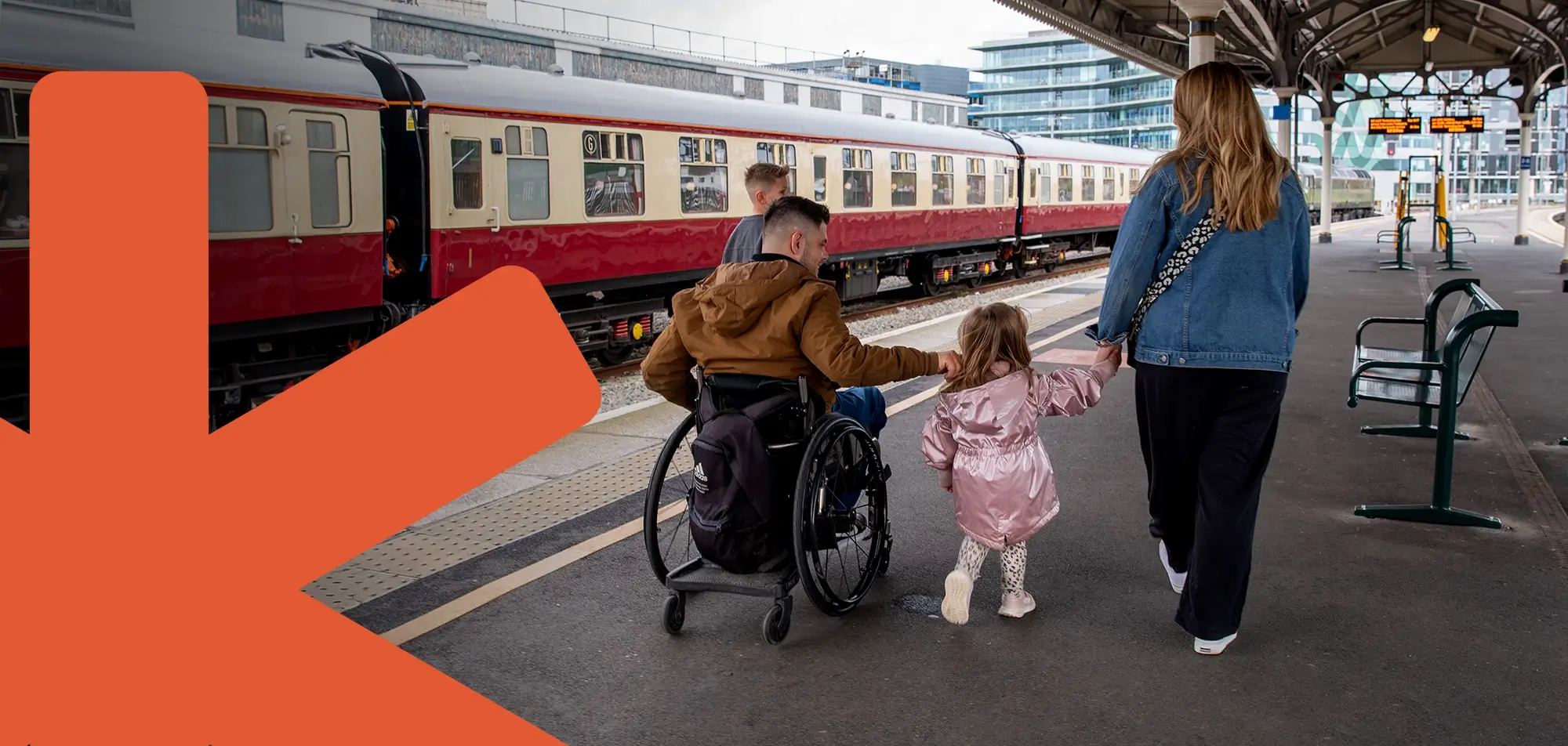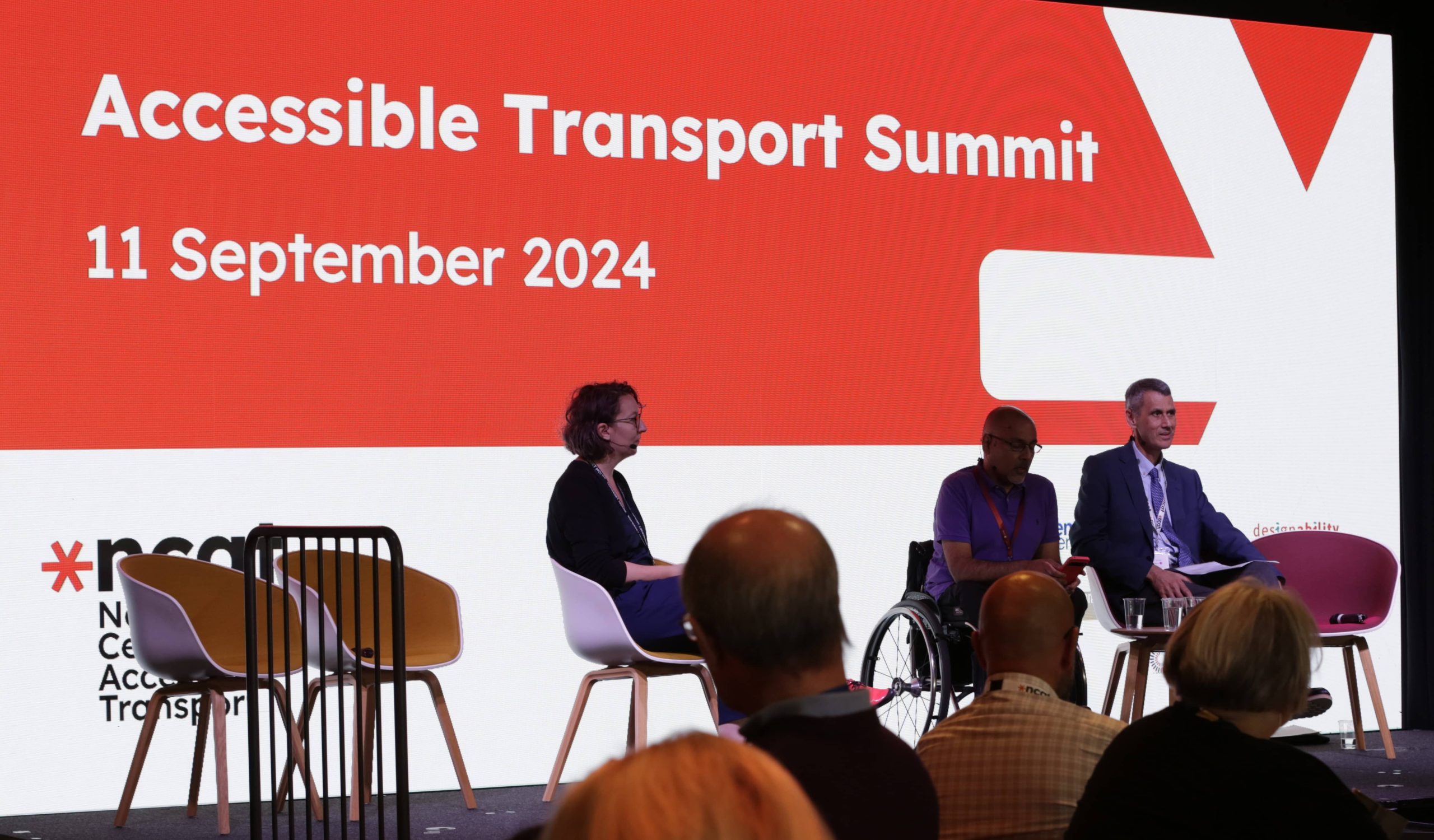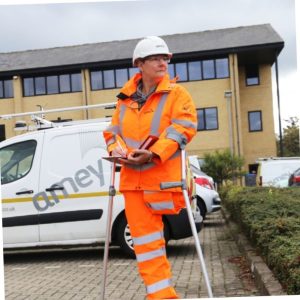The National Centre for Accessible Transport (ncat) held its first Accessible Transport Summit on Wednesday 11th September at Plexal, Stratford East.
Our goal was to make transport more accessible, together!
You can watch the livestream from the day on Youtube
The Summit was hybrid, with 93 attendees in person and 34 online. It brought together key stakeholders in the field of transport accessibility including disabled people, disabled people’s organisations, industry experts and policy makers to discuss the pressing challenges in accessibility. All attendees participated in talks, workshop activities and feedback sessions.
The day focused around looking at the outcomes from ncat’s first pieces of research, to identify the key themes that disabled people faced with accessing transport. These themes were then reviewed and prioritised, with the most common ones being taken forward as ‘challenges’, to be the subject of the first funding opportunity under the Scaling Innovation programme.
The four key themes were:
Theme 1: Not involving disabled people
Among Summit attendees there was widespread agreement that not enough disabled people are involved in transport decision-making – including transport strategy, policy, and infrastructure design. There was also a feeling that when disabled people are involved in decision-making, it is often in a consulting role, towards the end of the process, as opposed to disabled people leading and driving forward initiatives and being compensated fairly for doing so – which would be the ideal approach.
Theme 2: No accountability
There was considerable frustration among attendees about organisations not being held responsible for ensuring that transport is accessible, with a sense that there are no consequences for non-compliance with laws and accessibility standards.
Theme 3: Physical barriers in the street
Physical barriers in the street were a frustration for many attendees, and perhaps unsurprisingly, this issue was most keenly felt among those with mobility impairments (particularly those who use mobility equipment) and visual impairments. In addition to infrastructure itself such as pavements not always being accessible, there was a sense that ‘street furniture’ is a problem that is getting worse. This is largely due to the emergence of micro-mobility technologies like electric bikes and scooters, which are often discarded on the street, not docked properly, causing obstructions.
Theme 4: Interactions with other people
The attitudes and behaviours of non-disabled people when using transport is a well-known and documented barrier to travel for disabled people. This includes transport assistance staff, in addition to the non-disabled public.
Key takeaways from the Summit were:
- The themes selected resonated with attendees and felt like appropriate challenges for ncat to be undertaking
- All attendees spontaneously discussed co-production with disabled people, showing the relevance and importance of the first theme of meaningful involvement of disabled people
- Accountability is important and seen as an area where ncat can make a real difference
- Attendees called for ncat to use their position to coordinate and amplify what is already being done
- While there is a space for further research to fill gaps, attendees look to see a solutions-oriented approach to any research undertaken
The Summit was the first in a series of wider public engagement activities, with the next planned for February 2026.
ncat is committed to providing the evidence base to make transport accessible to all.
If you are interested in getting involved in the research that we are doing at ncat, you can join our Community of Accessible Transport Panel (CAT panel) where you’ll have the opportunity to share your experiences of using transport and your ideas for how to make it better for everybody.














